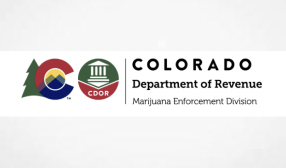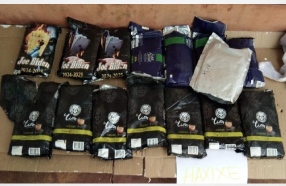THC-A, or tetrahydrocannabinolic acid, is swiftly gaining attention in the ever-evolving hemp market. THC-A offers unique properties and benefits that differentiate it from regular Delta-9 THC. However, once heated and smoked, THCA becomes psychoactive, just like its famous counterpart.
Navigating the THC-A landscape can be complex. This guide aims to demystify the process, offering an informed path to finding high-quality, safe, and compliant products.
Understanding THC-A
Chemical Composition and Difference from THC
THC-A is a chemical, known as a cannabinoid, found in raw hemp and cannabis plants. Chemically, it is the acidic precursor to standard Delta-9 THC, known simply as “THC.” The primary difference between THC-A and THC lies in their molecular structure.
THC-A contains an additional carboxyl group, which it later loses through a process known as decarboxylation. Heat generally induces the process, such as when someone smokes or cooks cannabis. Ultimately, decarboxylation transforms THCA into THC. So, consumers who purchase a smokable product from the selection THC-A online will experience mind-altering effects.
However, in its unheated form, THC-A is non-psychoactive, meaning it does not produce a “high.” This quality is mainly due to THCA’s additional carboxyl group, which changes its shape and does not allow it to fit into brain receptors in the same way as THC.
THC-A Effects and Benefits
THC-A, in its raw, unheated form, exhibits several non-psychoactive effects and potential health benefits:
- Anti-Inflammatory Properties: THC-A may offer anti-inflammatory benefits, potentially aiding conditions like arthritis and lupus.
- Neuroprotective Effects: Early studies suggest THCA has neuroprotective properties, potentially helpful in neurodegenerative disease treatment.
- Anti-Nausea and Anti-Emetic: THC-A shows promise for reducing nausea and vomiting, especially for chemotherapy patients.
- Pain-Relieving Effects: Some scientists suggest THC-A’s role as a pain reliever, potentially due to its anti-inflammatory properties.
Heated or decarboxylated THC-A exhibits standard THC’s benefits and effects.
- Psychoactive effects, including altered perception mood changes.
- Potential therapeutic benefits for conditions like chronic pain, sleep, and nausea.
Potential benefits aside, THC-A research, both in raw and heated forms, is still preliminary. Clinical studies are required to determine any potential medical benefits conclusively.
Legal and Compliance Aspects of THCA
The 2018 Farm Bill, a significant piece of legislation, indirectly affected THC-A’s legality and availability nationwide.
- Hemp Legalization: The 2018 Farm Bill federally legalized hemp, a Cannabis sativa plant, by removing it from the definition of marijuana under the Controlled Substances Act. The Bill also legalized every part of the plant and derivative product that contains a Delta-9 THC concentration of less than 0.3% on a dry weight basis. Therefore, hemp-derived products rich in THC-A could be considered legal under this definition.
- Decarboxylation Consideration: Legal complexity arises during decarboxylation, where THC-A converts to delta-9 THC through heat exposure. To account for this conversion process, the USDA requires hemp growers to test plants for total THC content post-decarboxylation. Plants that pass lab testing are legally compliant. However, finished products may fall outside the legal definition if heating and smoking them create a Delta-9 THC concentration above 0.3%.
- State Regulations: Federal rules aside, some states have stricter regulations that could affect the legality of THC-A products. For example, Oregon includes THC-A content in their total THC potency limit, effectively banning hemp-derived THCA products.
The bottom line for consumers is that THC-A’s legality varies by state, despite federal rules legalizing hemp products with less than 0.3% Delta-9 THC. Many states allow hemp-derived THC-A, while others impose restrictions. Additionally, the decarboxylation process may put THCA products in a legal gray area. Consumers must stay informed, as laws can change frequently.
Quality Indicators for THC-A Products
In the quest for high-quality THC-A products, consumers must consider several essential factors to ensure they are getting the best possible experience.
- Source: Premium THC-A flower should originate from well-established and reputable cannabis cultivators. Consumers should look for products sourced from farms known for sustainable and organic practices. Such farms prioritize natural fertilizers, pest control methods, and environmentally friendly farming techniques, which can contribute to the overall quality of the final product.
- Extraction Methods: Consumers purchasing THCA vapes must consider the method used to extract THC-A from the hemp plant. High-quality products employ safe and efficient techniques that preserve purity and potency without leaving harmful solvents behind. Third-party lab results can confirm that THCA products are free from chemicals like butane.
- Purity: Purity is paramount when assessing THC-A quality. A superior product should contain minimal impurities, additives, or contaminants. Third-party lab testing can provide valuable insights into the product’s integrity by verifying its THC-A content and ensuring it is free from pesticides, heavy metals, and microbial analytes.
- Ingredients: Consumers seeking a premium THCA experience should look for products that contain full-spectrum plant compounds. Many high-quality formulas include botanical terpenes (essential oil-like compounds) for flavor and therapeutic effects. Products may also include alternative hemp-derived cannabinoids like HHC and THCP for their psychoactive properties.
How to Verify Compliance and Quality
Consumers can verify THCA compliance and quality through the following methods:
Lab Testing and Certification: THCA fans should look for products that have undergone third-party lab testing. Reliable THCA brands willingly publish test results featured on a Certificate of Analysis (COA), confirming the product’s potency and purity. Consumers should avoid purchasing THCA from brands that do not provide third-party test results.
Understanding Lab Results: When reviewing lab certificates, consumers should focus on key data points to ensure a product is safe for consumption. For example, the THC-A content on the COA must align with what’s stated on the THCA flower or extract label. The lab results should also confirm the absence of contaminants, like pesticides, pesticides, and heavy metals.
Reading Product Labels: Consumers should also pay close attention to THCA labels. Product labels should include essential information such as the THC-A concentration, additional cannabinoids and terpenes, non-botanical ingredients, and dosage instructions. Labels should also indicate compliance with state and federal regulations regarding THC potency limits.
Compliance with Regulations: Regardless of label claims, consumers must familiarize themselves with their state’s regulations regarding THC-A in hemp and cannabis products. Consumers must be informed about local rules to avoid legal issues.
Brand Reputation: Finally, THCA fans must consider the brand’s overall reputation. Established brands with a history of producing high-quality and compliant products are safer than unknown producers. Customer reviews will help indicate credibility.
The Bottom Line
Navigating the THC-A landscape can be confusing, with varying laws and product options. Consumers must consider factors like the plant source, brand reputation, extraction methods, purity, and lab testing to ensure a high-quality experience. They must also stay informed about state and federal regulations to remain compliant.
















